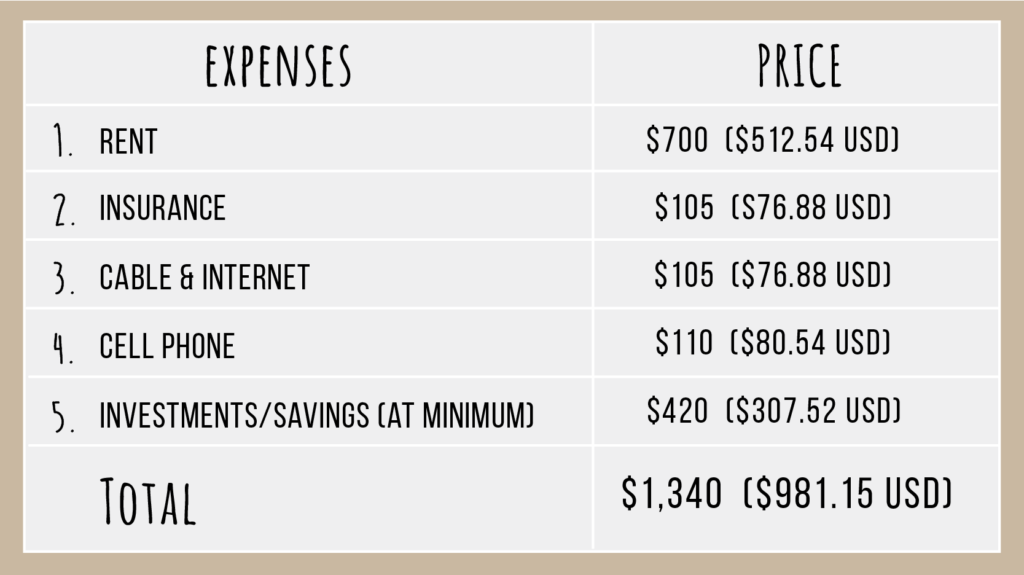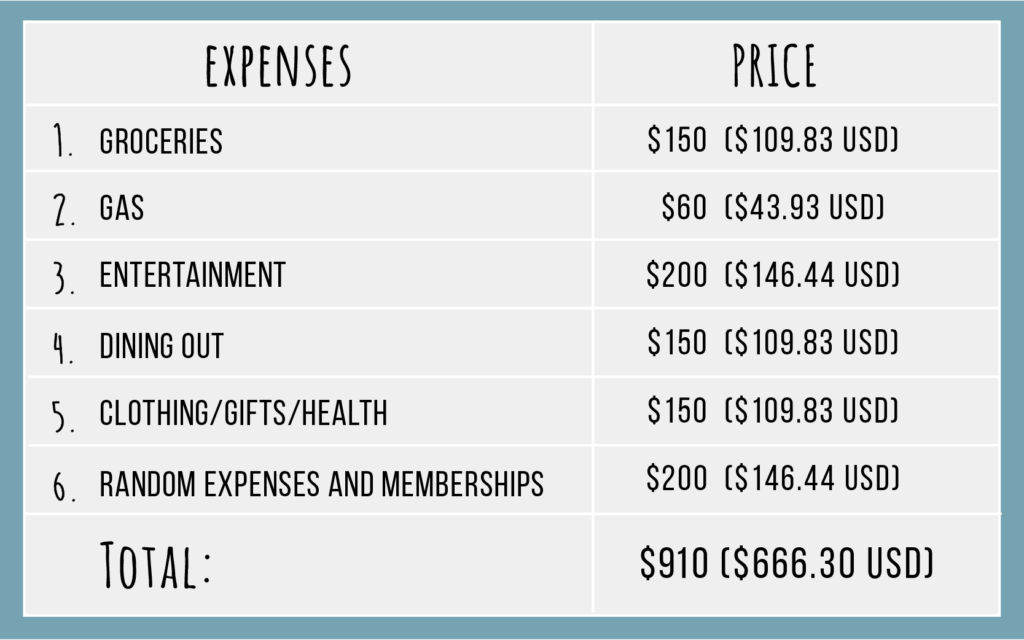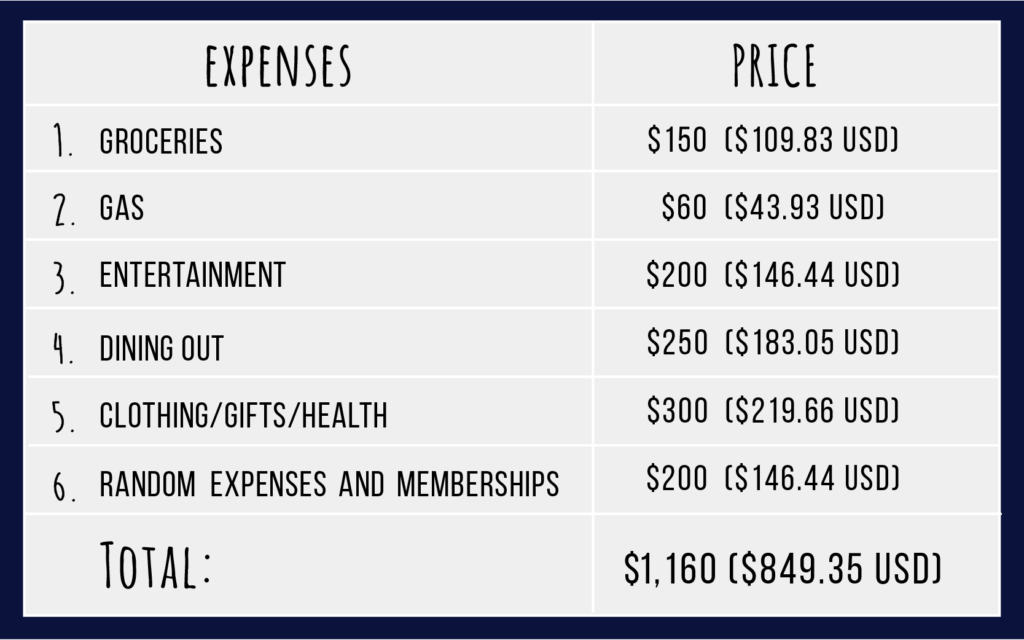The Budgeting Trick That Allows Me To Worry Less About My Latte Habit

Budgeting has been my worst enemy, my best friend, and my math tutor that hates how distracted I get during our sessions all at once. It’s never been an easy “one-size-fits-all” solution for me and my money.
Why? Well, mostly because I hate sticking to a budget that will 100% change every single month, and because once I convince myself I hate something — well, that’s basically it. (Unless you’re some sort of food. I’ll eventually eat you regardless of my hatred.)
However, if there is one part of a budget that is more reliable than a radio station playing Drake at least 64 times a day, its my fixed costs.
Every single month, I know I’ll be spending the following:

That means, that I’ll have around $1,700 ($1243.55 USD) leftover to spend on my variable expenses, which normally go something like this:

Therefore, my leftovers for saving would be around $790 ($577.89 USD).
Wow, that was bang on you guys. I think I know my money a little bit too well (said no one ever).
So why do we worry about variable expenses at all?
Unless you are seriously awful with money (which we all are at some point), living outside of your means takes a lot of work. I mean, it’s hard to overspend if you are aware of what you have leftover each month. Unless of course, you don’t.
So, what if I take variable expenses out of my budget altogether? Am I going to lose sight of my spending habits and suddenly spiral out of control financially? Sure, it’s possible.
However, after getting a handle on how much I spend each month, and understanding that what’s leftover will always be roughly what’s leftover, I can choose how much I allow myself to spend. Without a strict budget.
After all, the reason I’m always feeling guilty about how much I spend on silly expenses is because I’ve always given myself limitations. I’ve always told myself I can only spend $150 on dining out. So, that month (*cough* April *cough*) with 13 birthdays in a row, I shouldn’t feel bad if I spend an extra $26 on an overpriced brunch and delicious London Fog.
Maybe in April, my variable expenses look something more like this:

Being in control of my variable expenses is the one thing that makes this seem doable. Because that’s just it.
We are totally in control of our variable expenses, even though they aren’t fixed costs.
We decide how much we spend on groceries, our vehicles, clothing, and beyond. Some of us just have more control than others. “But Alyssa, what about…” Shh, sweet child. I know what you’re thinking: “What about unexpected variable expenses?”
But isn’t that why I save for emergencies anyways?
Focus on the fixed.
Instead of worrying how much I’ve been spending on coffee, sushi, and Twizzlers, I’d rather focus on how much I spend on rent, insurance, and cable. These numbers never increase unless I am given notice, or decide to change them myself.
But these numbers can be decreased if I try my hardest, and ask the right questions. Your fixed expenses can be hard to lower, but the long-term benefits from reducing these amounts can be a lifesaver. And no, I’m not talking about food anymore.
For starters, I always make sure that any additional fixed costs I take on are within my budget, can be trimmed if necessary, and keep my lifestyle sitting pretty. The only Joneses I know now are the frugal bloggers around the internet, and that is a comparison game I’ll be playing for a long time to come.
Alyssa Fischer claims she’s not an expert on personal finance — which is why it’s easy for her to explain financial topics without getting too intense. You can find her on her blog, Mixed Up Money, where she proves money isn’t boring (and that it’s also a little funny). You can also spend all day ranting with her about your finances on Twitter.
Image via Unsplash




